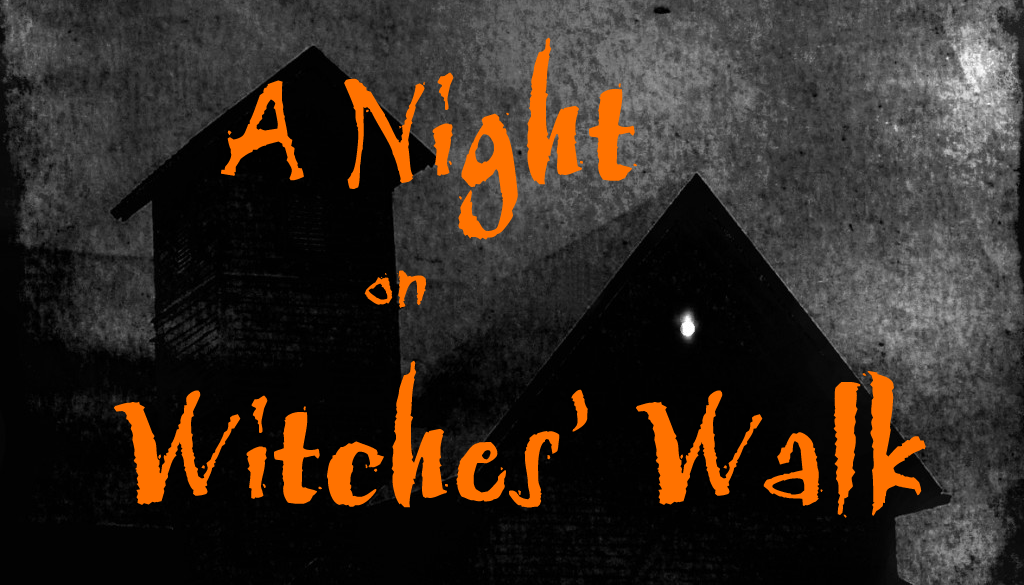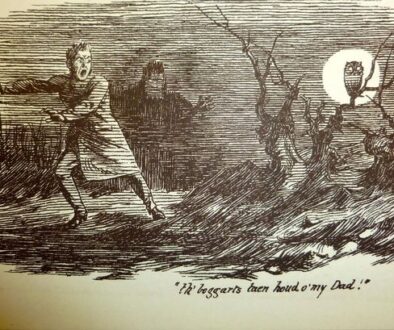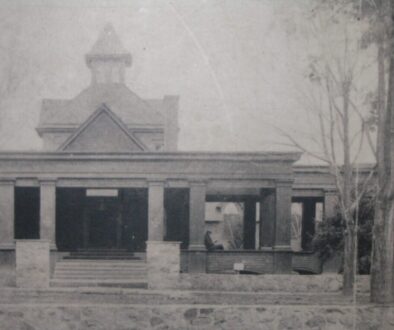“A Night on Witches’ Walk”: A Seneca Supernatural Tale
[The grandmothers were the ultimate keepers of much of the supernatural tradition, it seems, among the Allegany Seneca. In his childhood the late author and storyteller DuWayne “Duce” Bowen (1946-2006) used to overhear his own grandmother talk with the grandmother of the girl who’d become his wife Janis, and he remembered many of the tales that passed between them. I always think about him at this time of year, and this piece is in his honor, part of my recollection of his July 31, 2002 talk in Olean, NY.]
I had written about the lore and legend of the Seneca culture-keeper Duce Bowen in my first book “Shadows” (published in 1997), but I had not met him until I dropped in on a storytelling session he was presenting at a public library on the last night of July. That’s Lughnasa, one of the four traditional Celtic fire-festivals and a night on which my thoughts usually range to the imagery and insights of my own ancestors. But the chance to see and hear the man who had preserved so much of the tradition of such an important culture took precedence, and I shot down the Olean Road into the golden summer dusk. I found the library packed.
The celebrated storyteller was neither big nor broad, and by that stage in his life he walked a bit unsteadily. As he was escorted up to the lectern he talked a bit in Seneca with his companions. A few others in the front rows spoke back to him in the same tongue. Then he chuckled, and addressed us all in English. “Sounds like there’s a good crowd,” he said. He’s legally blind, so that was his way of judging it. He was also right. That hall could hardly have held another chair.
As he stood and got his thoughts together, I was processing my own. I found myself really enjoying the sound of the Seneca language he and a few intimates had used. Some of my New Age friends claim to love the tones of the native language of every culture they revere, but I am a bit more discriminating. I have heard Welsh and Irish Gaelic, and I did not like the sound. I’ve heard Mayan being spoken, and I did not find it musical or poetic, either. I really liked the sound of Seneca and found myself envying anyone who could speak it.
As it was for the Scandinavians, winter was the time for storytelling for the New York State Iroquois. As wonderful as it was to hear Duce Bowen on a summer night, his tales do seem more appropriate in the full prime of the Western New York winter. This is the first tale he told us, from his then-new book, A Few More Stories. Since the book sold out that night before I could buy one, what follows is my recollection. Duce began in English with, evidently, the traditional start of a Longhouse tale: “This happened one time….” This was his tale, and one highlighting the distinctive and very clipped Longhouse sense of humor.
A Seneca soldier from Salamanca came home after World War II. It had been only two months since the Japanese surrender, and he’d seen some of the hottest action of the war. His friends had been shot all around him, and he hadn’t gotten a single scratch. That first night back was a party, one that couldn’t be considered over until every one of his relatives and neighbors had had him over for dinner and heard personally whatever he had to say about the war.
By the second week he had worked his way through his brothers, sisters, and grandparents, and was visiting the home of some of his cousins. They had a wonderful meal: ham, beans, “ghost bread” (a traditional Iroquois delicacy), Coke…
The soldier was hero to the kids, and couldn’t leave without playing with all of them: dominoes, checkers, and all the other games they had. After that he sat with the elders, answering all their questions about the war and the Pacific. It was almost midnight when he started to head home.
His cousins urged him to spend the night with them. The Seneca considered the land around Salamanca to be haunted from the first years they lived there. Walking alone after midnight on the route he had planned – through the notorious ‘Witches’ Walk’ – was taking a chance. But the soldier laughed. No one who’d been through what he had just been through could be scared by a couple of ghosts. He put on his army coat, said goodbye, and started walking.
In just a few steps he was wondering if there could be anything to worry about. His cousin’s neighborhood was quiet, and all the houses were dark, as if the Six Nations folk all knew to stay inside on a witching-night. But the night was warm and still, and the moon was bright. It made the young veteran feel less alone.
His route took him along the Allegany River. As he looked across an open field toward a boat landing he thought he saw movement. He kept walking, and stopped again in the shadows of a line of trees. He was sure. Someone was running along the river bank, faster than a man should be able to run. He heard panting like that of a running horse, and the sound of hooves. The figure went into the shadows of the trees along the river. When it came into the leaf-filtered moonlight, it had turned and started running toward him. He froze, hoping the tree-shadows would hide him.
As the two-legged critter crossed the field toward him, still far off, it passed into clear moonlight and gave the soldier a glimpse of it. It seemed to have spindly goat shins and fluffy thighs, a broad human upper body and horns on its forehead. It entered the deep shadow of the line of trees and came closer, finally stopping, scraping the dirt right in front of the soldier. It stood looking at him in the dimness, eye to eye. Its little animal-eyes glistened in a faint splotch of moonlight, filtered through the branches above.
Then it turned and ran away from him, tearing off the way it had come. When it passed through the distant patch of moonlight, the soldier thought he could see a long tail waving behind it. Then it ran back into darkness and vanished into woods. “That was a devil,” the young man said to himself.
He walked again, but faster, and looking over his shoulder and all around him. Just as he started to think that all was well, he heard voices from behind a clump of trees in a pasture not far from the dirt road. They were speaking in the Iroquois language. He thought he recognized the Seneca word for “apple.” He kept still, and heard a Seneca phrase that sounds like “Ak hide nay” (“Be quiet!”).
And then again in Seneca, the voice said, “There’s someone on the road.” He froze.
“Let’s go to the other end of the field,” another Native speaker said.
“OK,” said the first. “The apples are better there, anyway.” Out of the darkness behind the trees came two horses. They walked peacefully to the far end of the pasture.
“Those were witches!”the soldier said to himself as he started to run.
His house was dark, and his parents had forgotten to leave the porch light on. He was in such a hurry to get in that he banged his head with the door.
As if he sensed what might be coming, his dad was up, lighting a pipe on the back porch. Rubbing his head the soldier came in, fear and consternation showing on his face like roads and villages on a map. His father turned on a light and puffed on the pipe. “Sit down,” he said. “Tell me what you saw.”
The soldier told his story, and ended rubbing his head. “Jeez, Dad. I was in the Pacific for two years with the Japanese Army trying to kill me, and I didn’t get a scratch. I’ve been home two weeks, and in one night I got banged on the head and witched twice.”
“You did,” said his dad, puffing on the pipe, his eyes twinkling.




